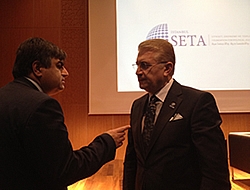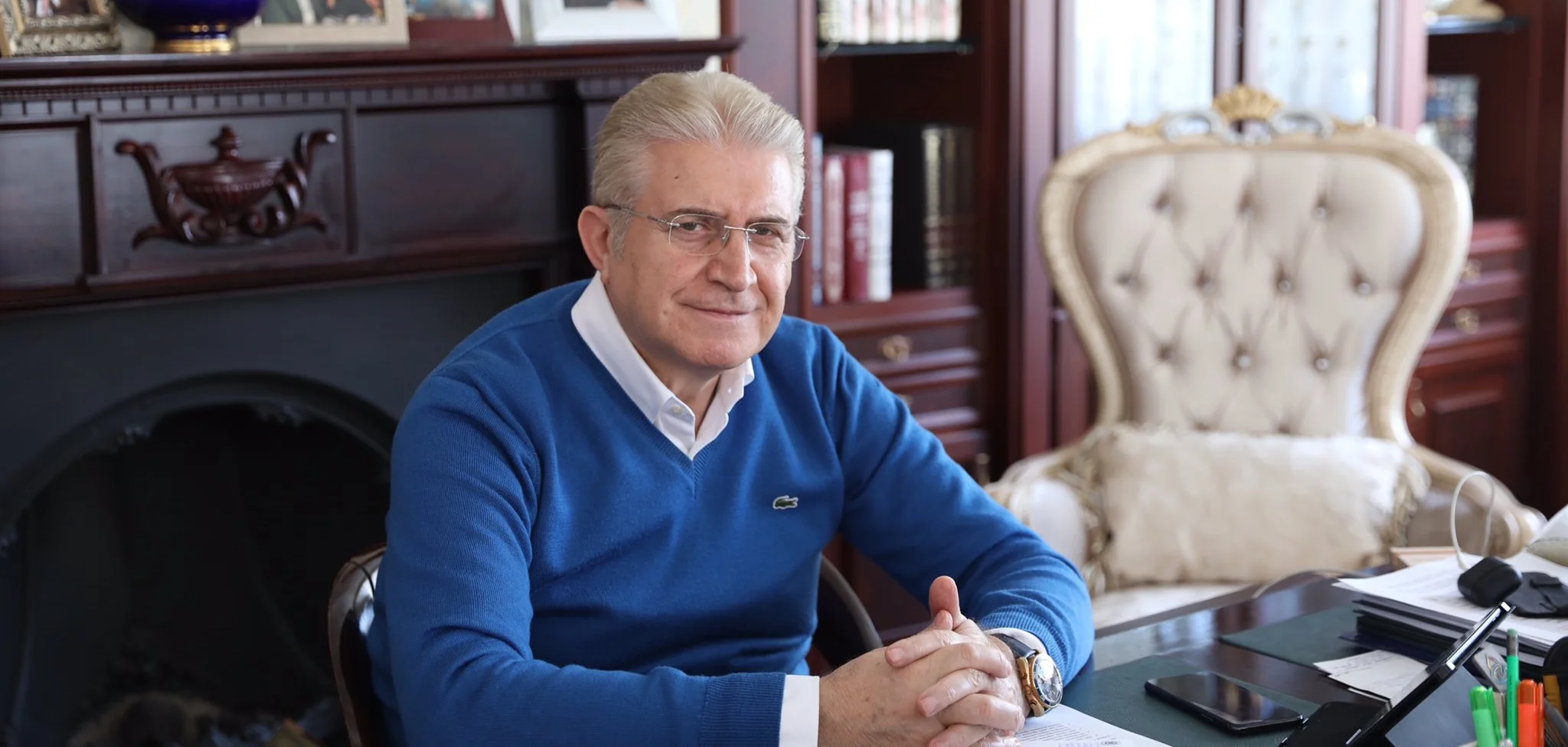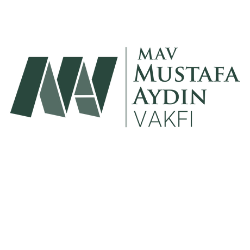
”
Moderatörlüğünü SETA İstanbul Genel Koordinatörü Doç. Dr. Fahrettin Altun’un yaptığı Türkiye’de Yükseköğretimin Yeniden Yapılandırılması paneli, Yükseköğretim Kurulu (YÖK) Başkanı Prof. Dr. Gökhan Çetinsaya, Marmara Üniversitesi Ortadoğu Araştırmaları Enstitüsü Müdürü Prof. Dr. Talip Küçükcan ve Yıldırım Beyazıt Üniversitesi Öğretim Üyesi ve SETA araştırmacısı Yrd. Doç. Dr. Zafer Çelik’in katılımıyla gerçekleşti. Yükseköğretimde özellikle son 10 yılda muazzam bir büyüme gerçekleştiğini belirten Prof. Dr. Gökhan Çetinsaya, “YÖK’ün bürokratik bir kurum olduğu, 2547 sayılı yasasının ihtiyaçlara cevap veremediği ve kurulduğu dönemdeki zihniyetin bugün devam edemeyeceği biliniyor. Ancak YÖK kaldırıldığında bile meselelerimiz var olmaya devam edecek. Yükseköğretimde özellikle son 10 yılda muazzam bir büyüme gerçekleşti ve veriler büyümenin devam edeceğini söylüyor ancak yükseköğretimin 2023 Türkiye’sine anlam katabilmesi için mevcut niceliksel büyümesini kalite süreçleriyle taçlandırarak niteliksele dönüştürmesi gerekiyor” diye konuştu.
Nitelikli büyümenin devam etmesi için önümüzdeki 10 yılda devlet ve vakıf üniversitelerine önemli görevler düştüğünü belirten Prof. Dr. Gökhan Çetinsaya, “Türkiye’de 2050 yılında 1 milyon 750 bin genç 18 yaşına girecek ve bu fertler yükseköğretim bekleyecek. 2016’dan itibaren teorik olarak 1 milyon 250 bin kişi liselerden mezun olacak ve yükseköğretime gelecek. Yani bizim 400 bin kişilik kitleye kapasite sunmamız gerekecek. Sistemdeki büyümenin bir kısmı açık öğretimle karşılandı. Önümüzdeki 10 yılda kaliteli büyüme süreçlerini devam ettirirken açık öğretim oranını da dünya ortalamasına çekmemiz, açık öğretim payını azaltmamız ve belki de açık öğretimi hayat boyu öğrenmeye dönüştürmemiz lazım. Nitelikli büyümeyi sürdürmek için önümüzdeki 10 yıl içinde devlet ve vakıf üniversitelerine önemli görevler düşüyor” dedi.
“HER SEKTÖRDE DOKTORALI İNSANA İHTİYAÇ VAR”
Hızlı büyümenin sonucunda öğrenci ile öğretim üyesi sayısının aynı oranda gelişmediğini ve öğretim üyesi sayısının arttırılması gerektiğini belirten Prof. Dr. Çetinsaya, “Derse giren hoca başına 48 öğrenci düşüyor. Bu sayıyı aşağıya çekmemiz lazım. OECD ortalamasını tutturmak için 45 bin öğretim üyesine ulaşmamız gerekiyor. Her yıl 4 bin 500 doktora mezunu veriyoruz. Ancak 2023 Türkiye’si için 10 ile 15 bin aralığında doktora mezunu vermeliyiz. Her sektörde doktoralı insana ihtiyacımız var” ifadelerine yer verdi. Yükseköğretimin uluslararasılaşmasının kaliteyi de beraberinde getirdiğini söyleyen Gökhan Çetinsaya, zihniyet sorunlarıyla yüzleşmenin önemini de vurguladı.
“YÜKSEKÖĞRETİMDE ZİHNİYET SORUNU VAR”
Türkiye’de yükseköğretimin zihniyet sorunu olduğunu söyleyen Prof. Dr. Talip Küçükcan, yükseköğretim yasasına referansta bulundu. Türkiye’de genel olarak eğitim kurumlarının, özel olarak da yükseköğretimin en temel sıkıntılarından birinin ideoloji taşıyıcısı olarak konumlandırılması olduğunu söyleyen Prof. Dr. Küçükcan, “Türkiye’de üniversiteler, homojenleştirme ve tek tipleştirme ideolojisinin bir taşıyıcısıdır. Türk Dili ve Atatürk İlkeleri ve İnkılap Tarihi dersleri bu yönlendirmeyle müfredata alınmıştır. YÖK’ün kurulmasından sonra özellikle üniversite sistemi son derece merkezileşmişti. Bu durum vakıf üniversitelerinin kurulmasından sonra azaldı ancak vakıf üniversiteleri çok geç açıldı. Türkiye’de yükseköğretimle ilgili reform çalışmaları son yıllarda ivme kazandı ve son 15 yıldaki demokratikleşme süreci yükseköğretim konusunu gündeme getirdi. Reform ihtiyacı bugün çok daha acil ve gerekli” diye konuştu.
Türkiye’de yükseköğretim Anayasayla düzenlendiğine dikkat çeken Prof. Dr. Talip Küçükcan, “Dünyanın hiçbir ülkesinde yükseköğretim anayasayla düzenlenmez. Çünkü anayasal olunca herhangi bir değişiklik yapılması çok zor. Anayasa değişikliğinin ne denli zor olduğunu Türkiye’de görüyoruz. Anayasa değişmeden yükseköğretimde değişiklik olamıyor. Üniversitelerin ideoloji yükü kaldırılmadan yeniden yapılandırılması mümkün değil” ifadelerine yer verdi.
“TOPLUMUN İHTİYAÇLARINA VE ÖZERKLİĞE DİKKAT ETMELİYİZ”
Yükseköğretimin yeniden yapılandırılmasında akademik özgürlükler ve hesap verilebilirlik konularının merkeze alınması gerektiğini ifade eden Zafer Çelik, “YÖK reformu ifadesi sıklıkla gündeme geliyor ancak kurulması planlanan kurumların da YÖK’ten çok farkı yok ve vizyonumuz YÖK’ün ötesinde değil. Yasa hakkında konuşurken toplumun ihtiyaçlarına ve özerklik konusuna dikkat etmeliyiz. Yükseköğretim sadece akademisyenlerin değil toplumun da ihtiyaçlarını karşılamalı ve uluslararası örnekler bizim için referans olmalı. Dünyada koordine edici ve düzenleyici kurullar, üniversitenin yönetim kurulları ve senatolar söz konusu. Bizim de yükseköğretim sistemin koordine edebilecek bir kuruma ihtiyacımız var. Konunun tüm paydaşları tarafından değerlendirilen yeni bir yükseköğretim programı planlamamız gerekiyor” şeklinde konuştu.
Panelin ardından değerlendirmede bulunan Doç. Dr. Fahrettin Altun, “Sorun alanlarını ve önümüzdeki 10 yılda hangi stratejik hedeflerin olması gerektiğini tartıştık. Bu çerçevede, yükseköğretimde niceliksel büyümeye paralel bir niteliksel büyümenin gerçekleştirilmesi gerektiğini meselesinin altı çizildi. Akademik insan kaynağı yetiştirilmesi bağlamında atılması gereken adımlar olduğu ve uluslararasılaşma konusunun önemi ortaya koyuldu. Ayrıca YÖK’ün konumuyla ilgili tartışmalar da yer aldı” diye konuştu.
“YÖK İLE ÜNİVERSİTE SAYISI ORANTILI DEĞİL”
Türkiye’de 200’ye yakın üniversite bulunduğunu ve YÖK’ün üniversite sayısı ile orantılı olmadığını söyleyen İstanbul Aydın Üniversitesi Mütevelli Heyeti Başkanı Dr. Mustafa Aydın, “YÖK oluşturulduğu dönemde Türkiye’deki üniversite sayısı yirmili rakamlardaydı. Bugün ise neredeyse 200’ye dayandı ancak YÖK’ün yapısı hala aynı şekilde muhafaza edilmekte. Bu nedenle bugün üniversite sayısı ile YÖK orantılı değil. Ayrıca dünyada yükseköğretimin değişim sürecine biz ayak uyduramadık. Türkiye olarak, AR-GE, indeksli yayın ve özgürlüklere yönelik çalışmalar yapabilmemiz için yükseköğretimin yeniden yapılandırılması gerekiyor. Bu konuda yapılan çalışmalarda anayasanın değişmesine bağlı olduğu için şu anda hayata geçirilemiyor” dedi.
“VAKIF ÜNİVERSİTELERİ İLE ÖZEL ÜNİVERSİTELER AYRILMALI”
Vakıf üniversiteleri ile özel üniversitelerin birbirinden ayrılması gerektiğini ifade eden Bezmialem Vakıf Üniversitesi Rektörü Prof. Dr. Saffet Tüzgen, “Ülkemizde üniversiteler devlet ve vakıf üniversiteleri olarak iki kategoride ele alınıyor. 60’a yakın vakıf üniversitesinin de tamamı aynı şekilde ele alınmamalı. Henüz Türkiye’de özel üniversitelerin kurulması mümkün olmadığı için adı vakıf olan gelir amaçlı üniversiteler var. Bunları özel üniversiteler şeklinde ayırırsak bizim gibi vakıf üniversiteleri için ayrı bir kategori sağlanması mümkün olacaktır” şeklinde konuştu.
“2023 HEDEFİNE 3 BİN 285 GÜN KALDI”
Dünyanın en büyük 10 ekonomisinden biri olabilmek için yol alırken üniversitelere büyük rol düştüğünü belirten Nişantaşı Üniversitesi İcra Kurulu Üyesi Burak Kılanç, “Türkiye’nin 2023 yılı için hedefleri var. 29 Ekim 2023 tarihine kadar bizim 3 bin 285 günümüz var. Dünyanın en büyük 10 ekonomisinden biri olabilmek için yol alırken üniversitelerimize büyük rol düşüyor. Bu nedenle yükseköğretimle ilgili reformları bir an önce hayata geçirmemiz gerekiyor. Bundan sonra yapılması gereken şey hedefler doğrultusunda aksiyon planını hayata geçirmek” ifadelerini kullandı.
YOK President Prof. Dr. Gokhan Cetinsaya said, “The Higher Education of Turkey must grow qualitatively instead of today’s quantitative growth to add a meaning to the Higher Education of Turkey in 2023.” in the “Reformation of Higher Education in Turkey” panel.
The moderator of the event was SETA Istanbul General Coordinator Doc. Dr. Fahrettin Altun. The attendees included YOK President Prof. Dr. Gokhan Cetinsaya, Marmara University Middle East Research Institute Principal Prof. Dr. Talip Kucukcan and Yildirim Beryazit University Teaching Staff and SETA researcher Yrd. Doc. Dr. Zafer Celik. Prof. Dr. Gokhan Cetinsaya stated that a huge growth has been seen in Higher Education in the past 10 years. Cetinsaya also stated that it is well known that YOK is a bureaucratic establishment and does not answer to the 2547th law and still continues its first day mentality. He continued his speech with; “However there will still be problems after YOK is gone. There has been a great growth in higher education within the last 10 years and the data says that the growth will not be stopping anytime soon. But for Higher Education to add a meaning to 2023’s Turkey, we must transform its quantitative growth into a qualitative growth.”
Prof. Dr. Cetinsaya said, “A big role has been given to the government and foundation universities in the following 10 years for the qualitative growth to continue. In 2050 1 million 750 thousand young people will be turning 18 in Turkey and these individuals will be awaiting higher education. As of 2016, in theory, 1 million 250 thousand people will graduate from high school and will go into higher education, meaning we will need to present a capacity of 400 thousand to these individuals. Some of the growth has been done with the help of distance learning. In the following 10 years while we are continuing our qualitative growth, we must drop the distance learning percentage down and must try and turn distance learning into lifetime learning. The government and foundation universities will be playing a big role in this qualitative growth.”
“EVERY SECTOR IS IN NEED OF DOCTORATE GRADUATES”
“Due to rapid growth, the number of students and teachers isn’t balanced and the number of teachers needs to rise.” said Prof. Dr. Cetinsaya. He continued by saying, “48 students per teacher. This number needs to be balanced. For us to be able to be at the OECD average, we need 45,000 teachers. Every year we have 4,500 doctorate graduates. However for 2023’s Turkey, we need 10,000-15,000 doctorate graduates. We need a doctorate graduate in every sector.” At the end of his speech Prof. Dr. Cetinsaya emphasized the importance of facing mentality issues in our time and also spoke of the quality of education brought by the internationalization of education.
“THERE IS A MENTALITY ISSUE IN OUR HIGHER EDUCATION”
Prof. Dr. Talip Kucukhan stated that there is a mentality issue in Turkey’s higher education system while referencing the higher education law. Kucukhan, “The education institutes in Turkey and especially the higher education institutions are all carriers of ideologies. Universities in Turkey are all carriers of homogenization and stereotyping ideologies. The Turkish Language and Ataturk’s Reforms and Principles classes have been taken into the syllabi in this way. After the establishment of YOK, the university system has been too centralized. This situation was eased with the opening of foundation universities but the foundation universities were too late. The reform works of higher education in Turkey has been accelerated within the past years and the democratization phase of the past 15 years has brought the topic of higher education into daylight. Reform is needed today and fast.”
Prof. Dr. Talip Kucukhan also stated that Turkey’s higher education is organized through the constitution. He continued, “No country organizes its higher education through the constitution. This is because it is very difficult to change the system if it is constitutionalized. We can see why constitutional things are so hard to change in today’s Turkey. There can be no changes in higher education until there is a change in the constitution first. It is impossible to rebuild without the universities bearing the weight of ideologies.”
“WE MUST PAY ATTENTION TO PEOPLE’S NEEDS AND AUTONOMITY”
Zafer Celik continued the panel by saying, “For higher education to be rebuilt, the topics of academic freedoms and accountability must be centralized. The issue of YOK reform is always highlighted however the other institutions that will replace YOK will not be so different and our vision isn’t beyond YOK. While talking about the law, we must pay attention to people’s needs and autonomity. Higher education shouldn’t just fulfill academicians’ needs but also the people’s needs and international examples should serve as a reference for us. Coordinated and organized institutions in the world, universities’ board of directors and the senate are the point of discussion. Our higher education needs an institution to coordinate it. We need to discuss a new higher education plan.”
After the panel, Doc. Dr. Fahrettin Altun made and evaluation, “The area of issue and the strategic goals for the 10 years ahead of us was the point of discussion today. In this frame, we have discussed the need for qualitative growth instead of quantitative. We discussed the need for educated human resources and the steps taken to fulfill this need. We also discussed the role of YOK.”
“YOK AND THE NUMBER OF UNIVERSITIES ISN’T BALANCED”
IAU President Dr. Mustafa Aydin said in his speech, “There are about 200 universities in Turkey and YOK’s number of universities isn’t balanced. In the time YOK was established in Turkey, the number of universities was about 20. But today, almost 200 universities are established but YOK’s methods are still the same. This is why the number of universities and YOK isn’t in balance. Also we haven’t been able to complete the phase of transition in higher education like the rest of the world. As Turkey, for us to work towards freedom and indexed press, higher education has to be reformed. Since this reform depends on the constitution, it cannot be made today.”
“FOUNDATION UNIVERSITIES AND PRIVATE UNIVERSITIES MUST BE SEPERATED”
Bezmialem Foundation University Rector Prof. Dr. Saffet Tuzgen said, “Foundation Universities and Private Universities have to be separated. Universities in our country are classified as government universities or foundation universities. There are about 60 foundation universities and they should all be weighed the same way. Since it isn’t possible to form a private university in Turkey yet, there are foundation universities that function in the same manner for financial benefit. If we divide these universities as private universities and universities like us, then we can have a different category for foundation universities like us.”
“3,285 DAYS LEFT TILL THE 2023 GOAL”
Nisantasi University Executive Board Member Burak Kilanc stated that a big role has been given to the universities in helping Turkey become one of the top 10 economies in the world. He continued with, “Turkey has many goals for 2023. We have 3,285 days till 29 October 2023. A big role is given to the universities to help our nation become one of the top 10 economies in the world. This is why we need to reform our higher education as soon as possible. From now on all the things done should be towards our goal.”
“


















